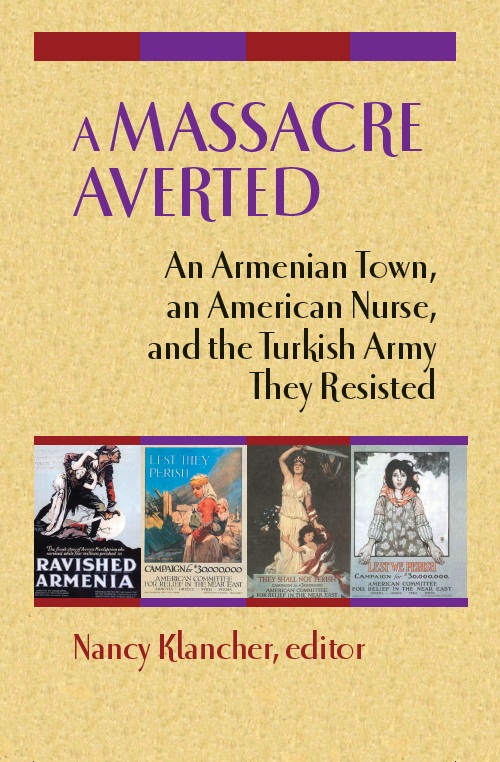|
|
Massacre Averted: An Armenian Town, An American Nurse, and the Turkish Army They ResistedSuper, Mary (edited by Nancy Klancher)
 Between 1920 and 1923, American relief workers managed to prevent the massacre of three hundred Armenian orphans at the hands of Turkish and Kurdish troops. One of them, a nurse, kept a diary that illuminated in dramatic detail the struggle against genocide in the midst of civil war. Between 1920 and 1923, American relief workers managed to prevent the massacre of three hundred Armenian orphans at the hands of Turkish and Kurdish troops. One of them, a nurse, kept a diary that illuminated in dramatic detail the struggle against genocide in the midst of civil war.
The 1920 siege of Hadjin, as narrated in the memoirs, involved strategic restraint and control on the part of all who found themselves there. It required intercultural and inter-religious exchange, and a suspension of wholesale massacre, if not serious violence.
Mary Super, author, was an American Red Cross Nurse sent to southeast Turkey in order to help reduce the suffering of the Armenian population after the events following World War I. She was in Hadjin, Cilicia in 1920 when Turkish and Kurdish Kemalists besieged the small mountain town for two months. Mary’s memoirs tell the story of her time in Cilicia and of the siege. Among other acts of bravery, the relief workers successfully protected and kept alive approximately 300 Armenian orphans for the duration of the siege. In doing so, they became active participants in what turned out to be a sustained yet tenuous, psychologically complex negotiation between themselves, Armenian villagers, and a diverse coalition of Nationalist soldiers.
Nancy Klancher, editor, teaches at the University of Pittsburgh.
|
 Between 1920 and 1923, American relief workers managed to prevent the massacre of three hundred Armenian orphans at the hands of Turkish and Kurdish troops. One of them, a nurse, kept a diary that illuminated in dramatic detail the struggle against genocide in the midst of civil war.
Between 1920 and 1923, American relief workers managed to prevent the massacre of three hundred Armenian orphans at the hands of Turkish and Kurdish troops. One of them, a nurse, kept a diary that illuminated in dramatic detail the struggle against genocide in the midst of civil war.